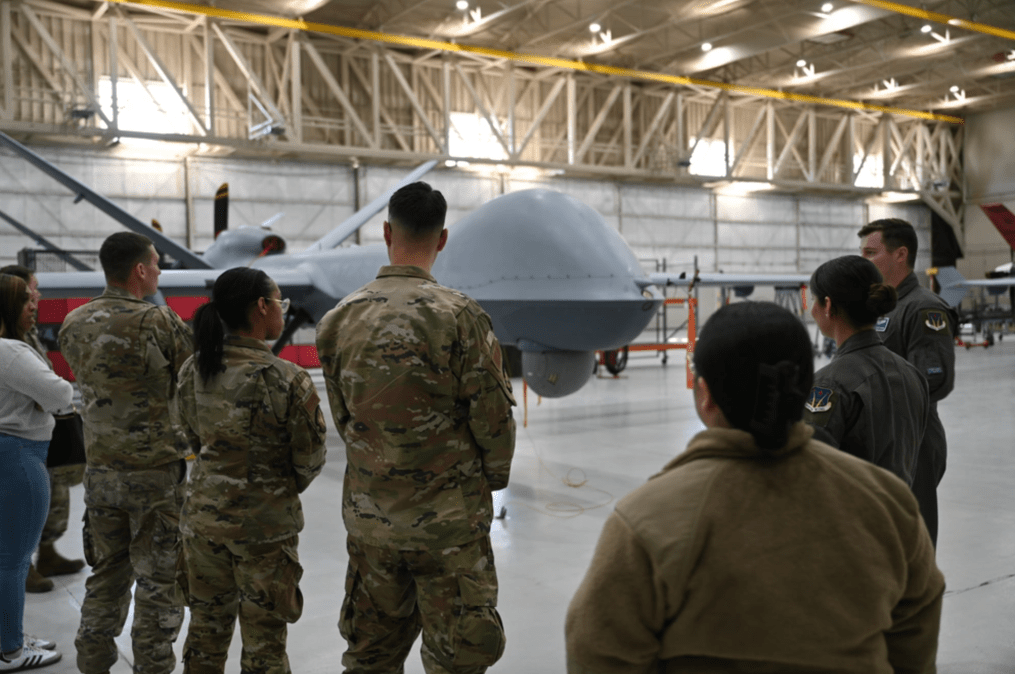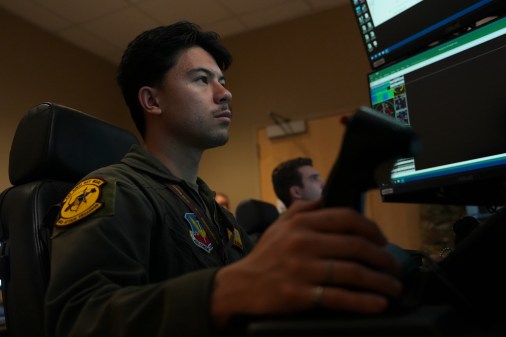New bill aims to expand combat drone pilots’ access to benefits, mental health care

A bipartisan pair of lawmakers on the Senate Armed Services Committee recently proposed legislation that would formally recognize off-site drone pilots involved in combat missions and expand their access to mental health care and other services after retirement.
The Combat Action Recognition and Evaluation (CARE) for Remotely Piloted Aircraft (RPA) Crews Act seeks to establish a “status identifier” for pilots of uncrewed systems who participate in combat operations to increase their access to services they earned.
In the context of military officials, status identifiers help track, classify, and communicate aspects related to their combat training, qualifications and readiness.
The proposal was introduced by Sens. Jacky Rosen, D-Nev., and Kevin Cramer, R-N.D., who represent states with military bases where personnel operate multiple types of remotely piloted drones.
A Senate spokesperson from Rosen’s office shared a copy of the legislative text with DefenseScoop, as well as the language for a provision along the same lines as the bill that they confirmed was approved as an amendment in the SASC-passed version of the National Defense Authorization Act for fiscal 2026, which is now up for review by the full chamber.
“Not later than 180 days after the date of the enactment of this Act, the Secretaries of the military departments, in consultation with the Secretary of Veterans Affairs, shall establish a status identifier or equivalent recognition to denote the combat participation of remotely piloted aircraft (RPA) crew members who conduct operations in direct support of combat missions,” the NDAA language states. “The identifier shall be designed to enable appropriate consideration by the [VA] in the administration of benefits and services that account for combat-related service, consistent with how traditional combat designators are treated.”
Veterans’ eligibility for benefits after they complete their military tenure is typically tied to certain discharge conditions and specific requirements they fulfilled during their service.
The lawmakers’ hope is that drone pilots — who increasingly conduct high-stakes, real-world operations — will gain proper support and care that matches those given to other types of combat fighters and pilots, once they transition out of military service.
Rosen and Kramer proposed similar legislation during the last congressional session. The introduction of this text comes as the second Trump administration is placing a strong, strategic emphasis on reducing administrative and acquisition barriers for the military’s use of drones.




